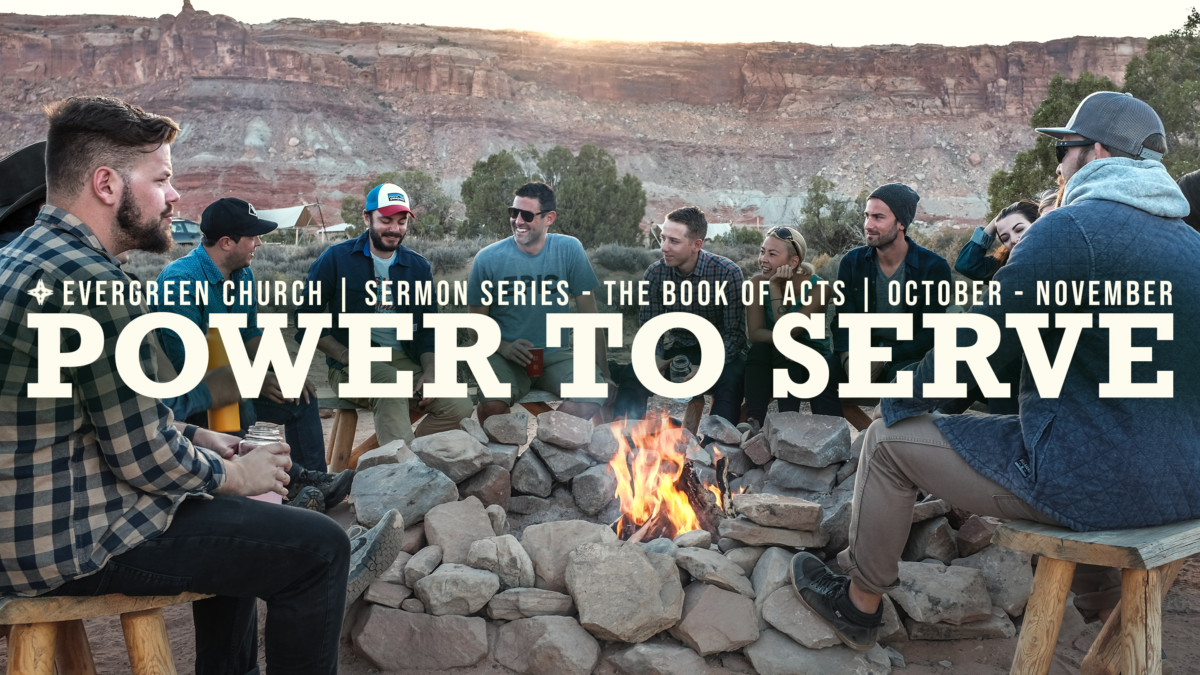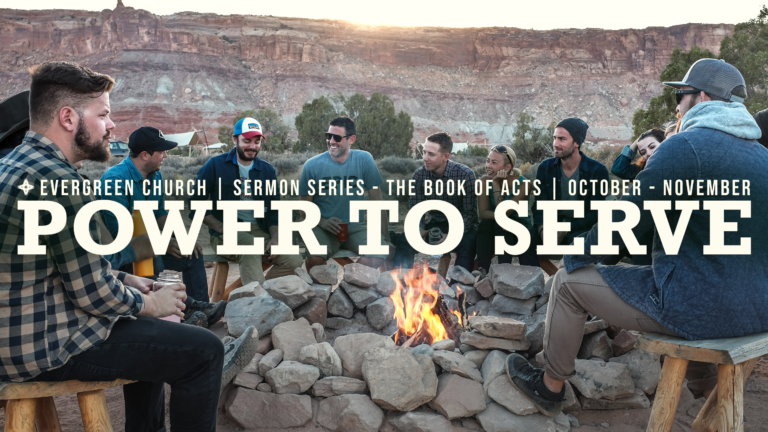
[Listen to an audio version here]
“Old Tom Bombadil is a merry fellow, Bright blue his jacket is, and his boots are yellow. None has ever caught him yet, for Tom, he is the Master: His songs are stronger songs, and his feet are faster.” Tom Bombadil is a mystery in the book The Lord of the Rings. Peter Jackson left him out of his film entirely.
But Tom Bombadil is a character that has always fascinated me. On the surface, he seems so simple, but he is complex. He is merry, full of joy. He delights in his wife and hills and home and food. He seems like he would be easily overcome, but the Ring cannot tempt him. In the midst of his joy, he is happy to serve.
He is a sort of picture of an unfallen human being, a human being not tainted by sin. I think such a person would be very different than we imagine. That person would be open to the world yet clearly defined. He would be a slave to none but a servant to all. He would be content and joyful yet always willing to serve. He would be transparent and simple yet complex and deep. I think Tolkien gave us a glimpse of this in his character of Tom Bombadil.
Sometimes, we think that joy and service do not go together. The Bible and this passage teach us something very different. Those who want to save their lives will lose them, and those who are willing to give them up will find them. Joy and service go together.
Some of us serve because we fear saying no. Some of us try to preserve ourselves but end up being self-centered. How do we get to a place of joyful service? That’s what the Thessalonians had found. They found joyful service to God and to their fellow human beings that made the world stand up and notice. How did it happen? In this sermon, I want to talk about the source, the means, and the effect of joyful service.
The Source of Joyful Service
How did the Thessalonians become joyful servants of the God of Israel and the Lord Jesus Christ? How did these servants of Aphrodite, Zeus, and Apollo who intertwined the worship of these gods into the fabric of their lives become servants of the God of Israel? The answer is clear in our text. It was by the power of the Holy Spirit.
The first thing we notice is that the Apostle Paul gave thanks to God for their response to the Gospel. This means that their response was due to the grace of God. The reason why they accepted the message about Jesus was due to God Himself.
Paul says, “For we know, brothers and sisters loved by God, that he has chosen you, because our gospel came to you not simply with words but also with power, with the Holy Spirit and deep conviction” (1 Thess. 1:4–5). In other words, it was God’s choice and the power of the Holy Spirit that enabled them to respond. Paul and Silas could preach the Gospel, but it was God who gave the response.
This is what we see elsewhere in the Bible. It is God who makes our hearts of stone into hearts of flesh to respond to His Word (Ez. 36:26–27). The natural man does not receive the things of the Spirit of God, for they are spiritually discerned (1 Cor. 2:14). No one can say that Jesus is Lord except by the Holy Spirit (1 Cor. 12:3).
This means that even though the Thessalonians had faith, hope, and love, the one who got the ultimate credit for it was God Himself. Even their good use of God’s gifts was a gift from God.
Human beings have turned away from the joyful service of God that they were created for. Instead, they exalted themselves in their pride. This is what we all do unless God intervenes. This is why we all need God’s grace.
Why do we struggle so much in this life? In part, because we start on a wrong principle: making ourselves the center of the universe. It’s only God that turns this around, and so it is only the Holy Spirit that begets joy. “You welcomed the message in the midst of severe suffering with the joy given by the Holy Spirit” (1 Thess. 1:6).
This was evidence of God’s special love and the choice that He made of the Thessalonians. Their response was not due to their merit or their works but to God’s electing, eternal, gracious love. This is something that all who believe can say: “I believe because of the unmerited love and choice of God Himself.” That’s a rock on which we can rest our hearts and lives.
The Means to Joyful Service
Even though it was God’s Spirit that empowered them for joyful service, this did not mean that God did not use things and people to bring the Thessalonians to that condition. He used a message to bring them back to Himself, and He used the messengers who brought that message.
First, there was the message. They received what he will later call the “Word of God” because it came, as it were, from God’s mouth. In the next chapter, he will say, “when you received the word of God, which you heard from us, you accepted it not as a human word, but as it actually is, the word of God” (1 Thess. 2:13).
Here he calls it the gospel. The gospel in the ancient world was “news.” A messenger would proclaim a “gospel” when a king won a victory or a new king was crowned. Here, the “gospel” is that Jesus is crowned King and has won the victory over Satan, sin, and death.
Why did God use the Word or the Gospel to transform the Thessalonian Christians? It makes complete sense. What keeps us from joy? It’s the messages we believe such as, “You are unworthy”; “you can’t do anything right”; “things won’t ever work out”; and “I won’t ever get to enjoy good things” that keep us from joyful service. What leads us back to joyful service is God’s good message: “you are accepted”; “you are valued”; “you can do good things”; and “you will be blessed.” These messages believed and imbibed can lead us back to joyful service.
So, the message has to be the right message, but the right message won’t be received rightly unless the Holy Spirit works in our hearts. We need the Word and the Spirit. That’s why Paul thanks God that it did not come to them only with words but also with the Spirit and power!
Because it is the Word that transforms, people sometimes think, we just need to get the word out there, and that’s all that matters. This idea fails to notice that God not only uses the message, he uses messengers to transform people.
How the messenger lives and how the messenger conveys the message is very important. “You know how we lived among you for your sake” (1 Thess. 1:6). The Thessalonians’ conversion to joyful service was the work of people that they could imitate. They conformed themselves to the commandments of the message but also to the comportment of the messengers. “You became imitators of us” (1 Thess. 1:6). Paul says.
How we live and what we say matters in the work of transforming people. God uses the Word, and He uses His people who live out that Word to bring people to believe the Word. So, we need to ask, what am I teaching with my actions? What do I say about God by how I live? Do I communicate joyful service? Or, am I communicating angry grievances? The former brings about the righteousness of God; the latter does not.
The Effect of Joyful Service
When the Holy Spirit worked, it had effects. The Thessalonians changed. They who were followers of idols and the gods Aphrodite, Zeus, and Apollo gave them up to joyfully serve God and wait for Jesus to return from heaven. This meant more than a private decision. The worship of the gods was intertwined with their political, economic, and family life. It was a radical change.
This radical message was rooted in joy. They welcomed the message, but this was not a mere intellectual acceptance. It moved their hearts. “You welcomed the message in the midst of severe suffering with the joy given by the Holy Spirit” (1 Thess. 1:7). They welcomed this message with joy. It caused their hearts to rise up as they heard the good news about Jesus Christ.
Christianity has a negative message. It says that all are sinners and that God’s wrath is coming against all sin, the pride of the theologian as well as the perfidy of the thief. Christianity also has a Gospel, a positive message tat answers the negative one. We are delivered from the wrath to come by faith in Jesus Christ. Recently, I read again the Heidelberg Catechism Q/A 60. It asks: “How are you righteous before God?” It answers:
Only by true faith in Jesus Christ. Even though my conscience accuses me of having grievously sinned against all God’s commandments, of never having kept any of them, and of still being inclined toward all evil, nevertheless, without any merit of my own, out of sheer grace, God grants and credits to me the perfect satisfaction, righteousness, and holiness of Christ, as if I had never sinned nor been a sinner, and as if I had been as perfectly obedient as Christ was obedient for me. All I need to do is accept this gift with a believing heart.
This is the beautiful message that can fill our hearts with joy in every situation.
Notice also this important point: they welcomed the message with joy in suffering. To enable us to live joyfully, we must have a foundation for joy that can last through suffering. The Gospel enables us to reinterpret our experiences of suffering in a way that preserves our joy. Even unbelievers can reinterpret suffering in this way to a limited degree, but we can do it in an ultimate way because Christ has experienced our sufferings and triumphed over them. Christ’s resurrection powerfully demonstrates that suffering is temporary but God’s love and power are forever for all His loved ones. The suffering is a refiner’s fire that brings out the pure gold of our faith more clearly.
So, they had joy. What did they do with it? They served. This joyful service means, first of all, that they served God Himself. In one sense, we all serve something. However, the true service that we are made for is service of the living God. We are not made to serve Aphrodite or romantic love, Athena or intellectual endeavors, Apollo or our talents, Zeus or our power, Bacchus or our pleasures. We are only properly aligned as human beings when we serve the living God.
Second, joyful service means serving God’s interests in the world. Joyful service means serving God in the everyday events of life. It means always and everywhere seeking to advance His kingdom and His interests in the world.
Third, joyful service means serving God’s people, His created people and His redeemed people. The Thessalonians served the people around them, and so their faith become known throughout the world. Our faith commitment is known by the love we have. It is always, “work produced by faith, your labor prompted by love” (1 Thess. 1:3).
God is recreating people to be the joyful servants He intended them to be.
Conclusion
All over the world, there are people like the Thessalonians, people who have left their previous way of life to serve God and wait for Jesus Christ. There are people like Michael. He was a Chinese student studying in Spearfish, SD, and I met him through a program connecting foreign students with local families. He had not grown up as a Christian but went to a church in South Korea. Through the work of his Pastor there, he came to welcome the message of Jesus Christ with the joy given through the Holy Spirit.
There are people like Charles Strohmer. He tried the American Dream and the New Age movement before the Holy Spirit took hold of him and brought him to Christ. You can read more about his transformation in the exciting book he wrote Odd Man Out.
There are people like me and many of you reading or hearing this. We do not know the time when we came to welcome the message with joy and enter into the joyful service of God, but for us and for Michael and Charles and all those like them, we sing with the church throughout the ages:
Long my imprisoned spirit lay
Fast bound in sin and nature’s night;
Thine eye diffused a quick’ning ray,
I woke, the dungeon flamed with light;
My chains fell off, my heart was free;
I rose, went forth and followed Thee.
Amazing love! how can it be
That Thou, my God, should die for me!
________
Photo by Fernando Hernandez on Unsplash







